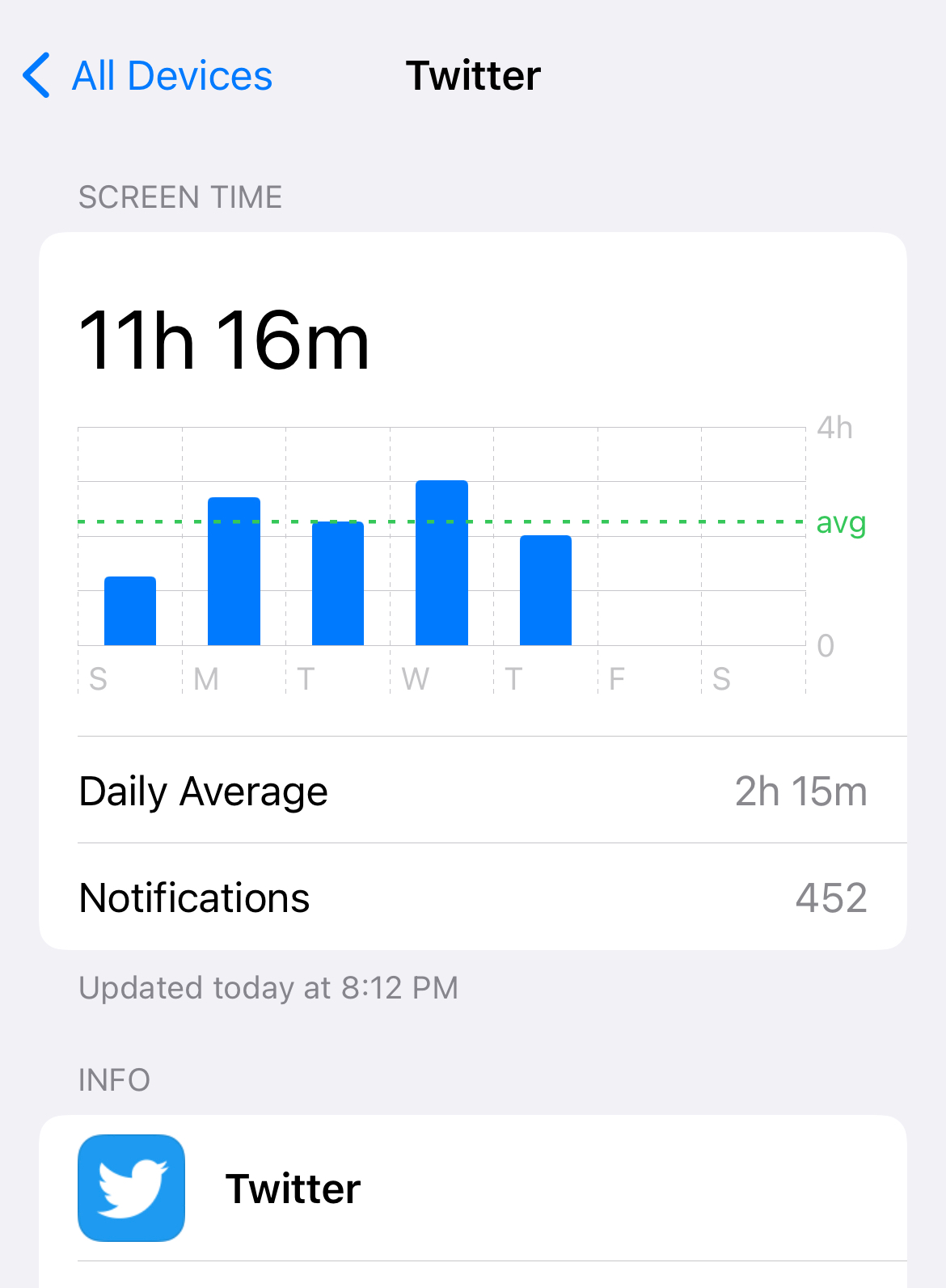For a newsletter about healthtech this may seem a bit off-topic but trust me, it does have some relevance. Twitter has become so central to my journalism over the last 15 years that I can’t imagine how I would cope without it, having just begun to build a useful network of healthcare tweeters as I try to get up to speed in a new area for me.
But in recent days I’ve seen many of the people I know and respect declare they are leaving Twitter - with some of them actually following through on their threat. I share much of their anger with what is going on under the chaotic reign of Mad King Elon. He seems determined to throw everything up in the air as if “move fast and break things” was a brilliant new management mantra he’d just invented, he’s alienated the advertisers Twitter needs if it is ever to pay down the debt he’s loaded it with, and he’s sacked many of the engineers who were working on the very innovations he is now promising to introduce.
After meeting the Tesla tycoon six years ago I described him as “brilliant but bonkers” but increasingly he seems just bonkers. I have no intention of paying him $8 or 8p for his bizarre new verified user thingamajig.
Like so many others I have explored whether Mastodon might be an alternative - I’m @RoryCJ@toot.wales if you want to track me down. It seems perfectly pleasant, if a little clunky, though I think we noisy out-of-towners should refrain from telling the locals how to run their community. But what I can’t see myself doing is having the time and patience to rebuild on Mastodon the vast teeming metropolis bursting with entertainment, information and debate - and occasionally flooded with raw sewage - that I have constructed for myself on Twitter.
I joined it in 2007, along with MySpace, Bebo and Facebook (or ‘Facepack’ as John Humphrys called it when he introduced the item), for a report introducing Today Programme listeners to the newfangled social media phenomenon. By Christmas I, along with much of London’s tech community had decided Twitter was the place to be. In those early years it was a friendly clubby place, where you could share news and views of what was going on in the tech world.
It quickly became indispensable as a journalistic tool - one day I asked who was the UK’s leading authority on battery technology and within hours I was rushing off to Bath University for an interview for the Ten O’ Clock News. One morning I woke to see reports on Twitter of a big earthquake in China. I called the BBC newsdesk and was greeted with scepticism - until ten minutes the news broke on Reuters.
Colleagues began to ask me to find case studies for them from my Twitter audience. One day Robert Peston, then the BBC’s Business Editor, wandered over to my desk and asked me to explain “this Twitter thing” to him. (Years later he accused me of ruining his life.)
During the 2010 General Election, when I was the BBC’s Digital Election Correspondent, I resolved to follow every candidate, every party official, every political journalist who had a Twitter presence at a time when Westminster was just beginning to get to grips with social media campaigning. Since then, I’ve followed thousands of other Tweeters, reflecting my interests both personal and professional - sourdough bakers, Brentford fans, cryptocurrency fans and sceptics, quantum computing professors, economists, and lately doctors, healthtech experts and NHS managers.
Today I have over 210,000 followers and I follow getting on for 7,000 Twitter accounts. The advantages of being an early adopter have gone - today just about every journalist is on Twitter and spots that earthquake in China or Gavin Williamson’s resignation letter at the same time.
But I still find that my Twitter feed is teeming with tweets I want to read because they give me new insights. I’ve been following the demise of the crypto exchange FTX and have enjoyed technology journalist Farhad Manjoo’s mockery of Sam Bankman-Fried’s “poor judgement call” and another journalist’s incredulity at finding venture capital firm Sequoia raving over the “absolutely fantastic” young founder just a couple of months ago. In the healthcare sphere, I’ve just learned about a new paper on genome editing to treat cancer, while a Twitter alert told me Brentford’s Ivan Toney didn’t make it into the England World Cup squad.
And for me, it’s where I’ve shared personal news, and got great support. In May 2019, I revealed my Parkinson’s diagnosis, and was then introduced to a vibrant community of tweeting “Parkies”.

When our dog Cabbage was stolen along with the dogwalker’s van last November, I took to Twitter to try to get her back and when she was found, thousands expressed their relief.
I admit I’m addicted, both to the constant drumbeat of news and the dopamine hit you get when one of your own tweets goes viral. I’m somewhat ashamed to admit that the ScreenTime function on my iPhone tells me I spent an average of 2 hours and 15 minutes a day on Twitter over the last week, more than on any other app.
But I’m not going to go cold turkey. I have made many friends on Twitter, I’ve learned a lot and laughed a lot, and occasionally cried a little. So, Elon Musk do try not to break anything else - Twitter feels like home and I’m not leaving.



ITHOUGHT IT WAS CALLED 'fomo' for short
Absolutely spot on Rory. Exactly how I feel and I’ve made my living from it for years. There are so many wonderful, thoughtful, super smart people here it’s really sad to see it getting messed up.